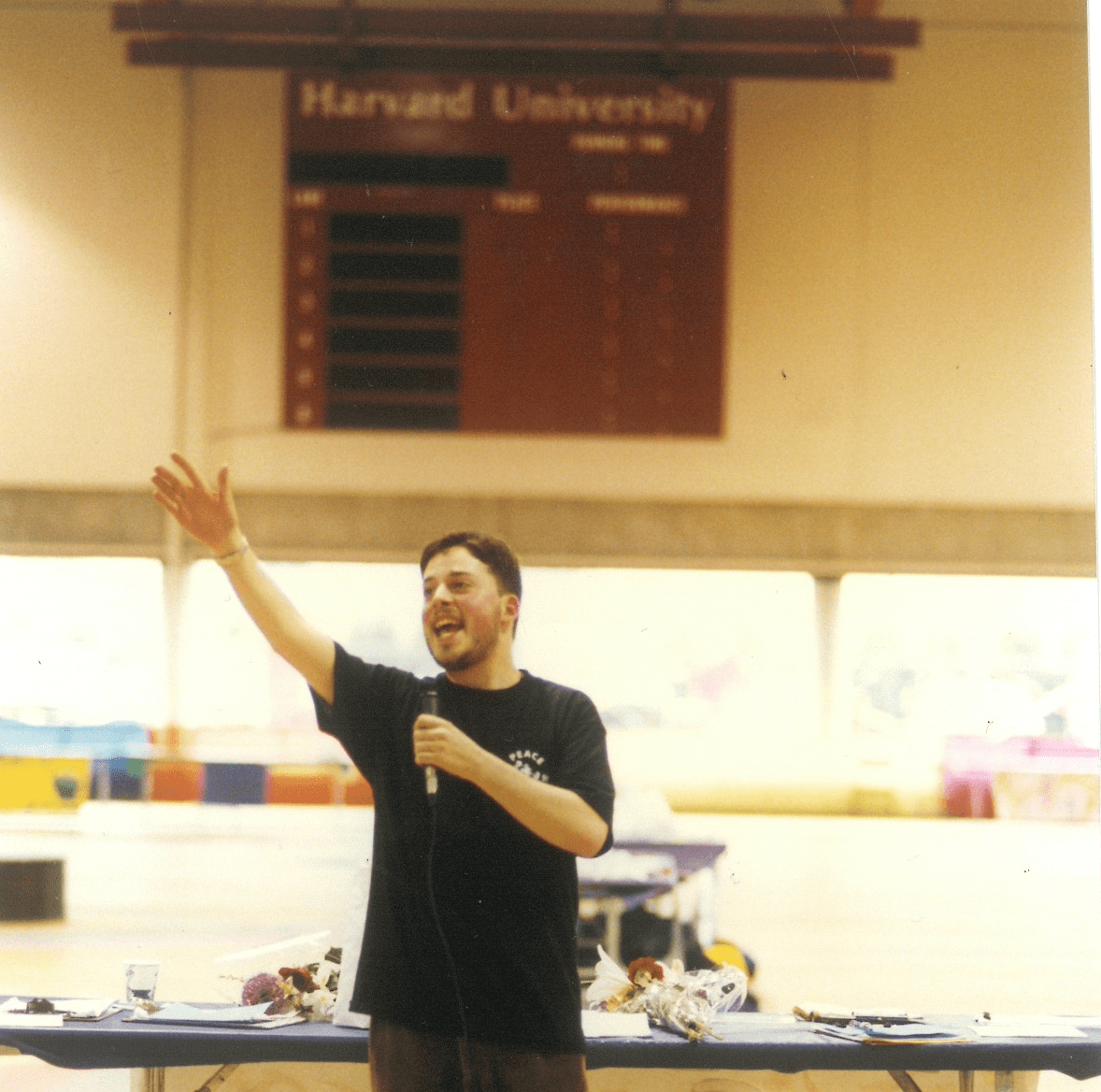Unlocking the moral imagination of young people: Eric Dawson ’96

Eric Dawson serves as the CEO and founder of RIVET, the first micro-financing platform for young social innovators.
From Eric Dawson’s LinkedIn page, we learn that he had odd jobs of bartending, electron microscopy, regional TV commercials, and serving as the driver for the author of “Curious George,” but the heart of his work has been focused on inspiring and unlocking the moral imagination of young people. Dawson serves as the CEO and founder of RIVET (started July 2021), the first micro-financing platform for young social innovators. The organization works with brands, influencers, and non-government organizations (NGO’s) to fund and amplify youth-led social change.
Dawson’s goal is to raise half a billion dollars to support a million young people and get their ideas off the ground. He explained it like this: “There are 1.8 billion young people (ages 13- 30) on the planet. Eighty-five percent live in places where they would have no access to funding. So, this will be the largest effort to radically expand who gets to engage in public service. The hope is that we are going to open up all sorts of powerful solutions to the world’s most complex problems.”
Dawson himself was a visionary teen service leader. When he was a freshman at Harvard College in 1993, he started Peace Games as his work-study project through the Phillips Brooks House Association (PBHA). He created a social-emotional learning curriculum for Boston Public Schools that grew and developed into Peace First, a youth-led global nonprofit that supports young changemakers across 166 countries.
As this year marks Peace First’s 30th Anniversary, Dawson who served as executive director for 30 years, reflected upon the organization’s success. “I’m proud of our adaptability, being able to stay connected to what young people need, and that’s different in 1993 and now,” he said. Young people need to be taken seriously as thoughtful leaders, and I’m proud that we’ve been able to give a million young people their first or early opportunity to feel powerful in a positive way. As a tutor for Adams House, he was able to create his “vocational educational experience” combining his learning and service work. “I often joke that I wish I loved something else,” Dawson said. “It would have been easier if I wanted to become a lawyer, consultant, or investment banker. These are pathways out of Harvard that are clearly delineated and marked especially in the mid-90s when I was graduating.”
At the end of the day, Dawson feels good about his public service journey. “I love the ability to create with other people in ways that have made the world a better, more just, more compassionate place. So, I feel I can go to bed at night knowing my time has been spent in a way that has created opportunities for other people,” he said. “To enter my midlife, I can look back and feel like I built something that is worthwhile in the world.”
The Profiles in Leadership series features stories and podcasts of notable Harvard alums and their social impact. For more information, visit: https://publicservice.fas.harvard.edu/profiles-in-leadership.




